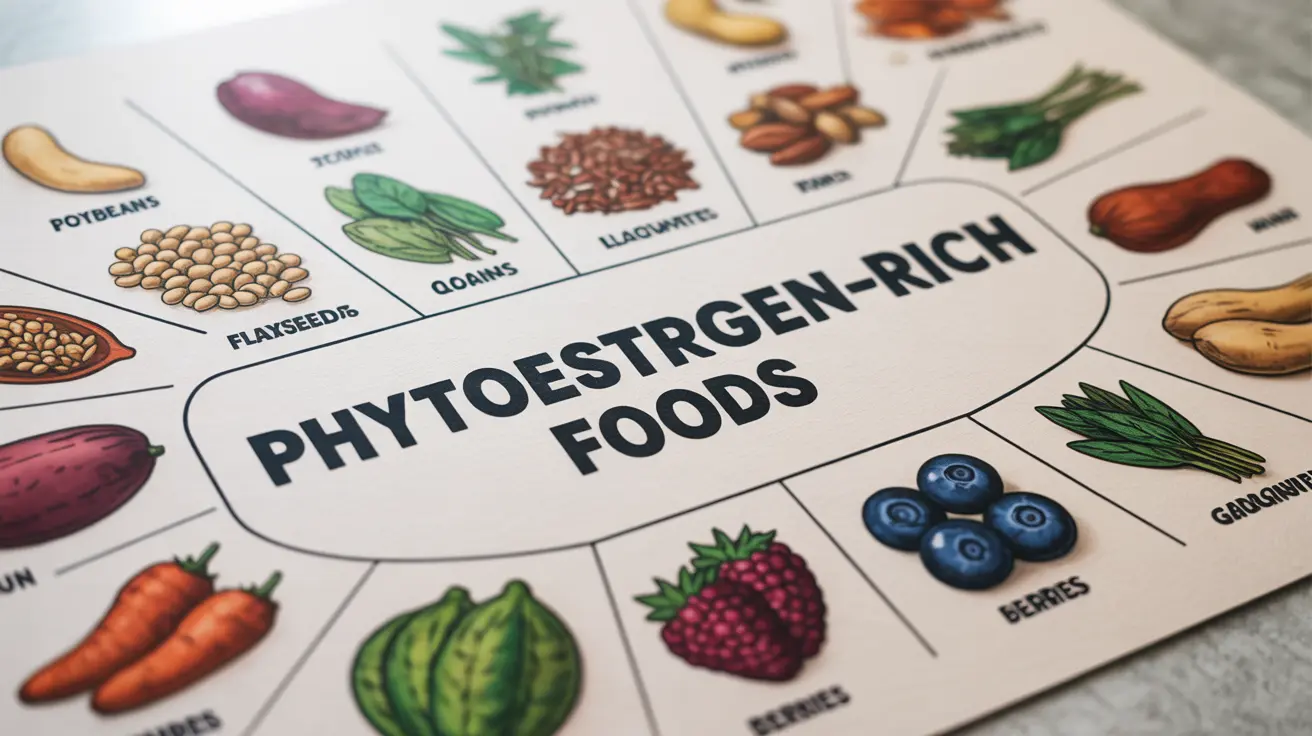Phytoestrogens are naturally occurring plant compounds that can mimic the effects of estrogen in the human body. These fascinating substances have gained significant attention in recent years due to their potential health benefits and their role in managing various health conditions, particularly those related to hormonal balance.
While found abundantly in many common foods, understanding how phytoestrogens work and their impact on health is crucial for making informed dietary choices. This comprehensive guide explores the science behind phytoestrogens, their benefits, potential risks, and how to incorporate them safely into your diet.
What Are Phytoestrogens and How Do They Work?
Phytoestrogens are plant-derived compounds that structurally resemble human estrogen. When consumed, they can bind to estrogen receptors in the body, potentially influencing various biological processes. While their effects are generally weaker than natural estrogen, they can still have significant impacts on health.
These compounds are classified into several main categories, including:
- Isoflavones (found primarily in soybeans and legumes)
- Lignans (present in flaxseeds and whole grains)
- Coumestans (found in sprouts and some legumes)
- Prenylflavonoids (present in hops and beer)
Health Benefits of Phytoestrogens
Research has shown that phytoestrogens may offer several potential health benefits:
Menopausal Symptom Relief
Many women find that consuming phytoestrogen-rich foods helps reduce hot flashes, night sweats, and other menopausal symptoms. These natural compounds can help balance hormonal fluctuations during this transitional period.
Bone Health Support
Studies suggest that phytoestrogens may help maintain bone density, particularly in postmenopausal women. They may work by supporting bone formation and reducing bone resorption.
Cardiovascular Health
Regular consumption of phytoestrogen-rich foods has been associated with improved heart health, including better cholesterol levels and reduced risk of atherosclerosis.
Rich Food Sources of Phytoestrogens
Adding phytoestrogen-rich foods to your diet can be accomplished through various nutritious options:
- Soybeans and soy products (tofu, tempeh, edamame)
- Flaxseeds and sesame seeds
- Legumes (chickpeas, lentils, beans)
- Whole grains
- Nuts (particularly pistachios)
- Fresh fruits (especially berries)
- Selected vegetables (especially cruciferous varieties)
Safety Considerations and Potential Risks
While phytoestrogens are generally considered safe for most people, certain individuals should exercise caution:
Who Should Be Cautious?
Those with hormone-sensitive conditions, including certain types of breast cancer, should consult healthcare providers before increasing phytoestrogen intake. Pregnant women and those with thyroid conditions may also need to moderate their consumption.
Supplement Safety
While whole food sources of phytoestrogens are generally safe, supplements may pose risks due to concentrated doses. Always consult a healthcare provider before starting any supplement regimen.
Frequently Asked Questions
What are the health benefits of consuming phytoestrogens, and are they safe for everyone?
Phytoestrogens offer potential benefits including menopausal symptom relief, bone health support, and cardiovascular protection. While generally safe, individuals with hormone-sensitive conditions should consult healthcare providers before increasing intake.
How do phytoestrogens affect menopausal symptoms, and are they a viable alternative to hormone therapy?
Phytoestrogens can help reduce menopausal symptoms like hot flashes and night sweats. While they may be effective for some women, they're typically less potent than traditional hormone therapy and should be discussed with a healthcare provider.
Can taking phytoestrogen supplements have adverse effects, and when should you avoid them?
Phytoestrogen supplements may cause side effects and could interact with medications. Avoid them if you have hormone-sensitive conditions, are pregnant, or have thyroid issues without medical supervision.
What foods are rich in phytoestrogens, and how can they be incorporated into a healthy diet?
Rich sources include soy products, flaxseeds, legumes, and whole grains. These can be incorporated through balanced meals, smoothies, and healthy snacks as part of a varied diet.
Does consuming phytoestrogens increase the risk of certain cancers, or do they offer protective effects?
Research suggests phytoestrogens may have protective effects against certain cancers when consumed through whole foods. However, individuals with hormone-sensitive cancers should discuss consumption with their healthcare team.




